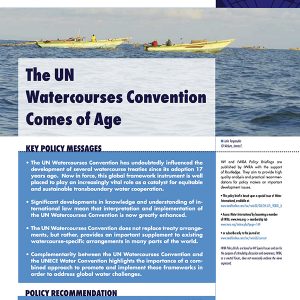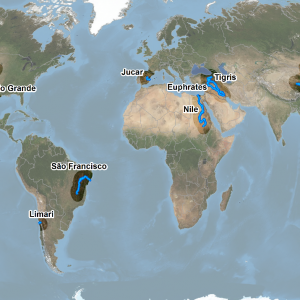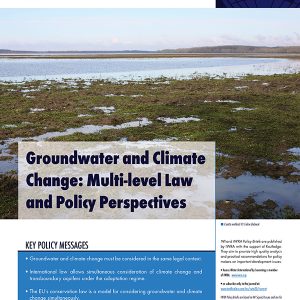
Objective:
Glaciers are a crucial source of freshwater for millions of people worldwide, yet they are rapidly disappearing due to climate change. In the framework of World Water Day 2025: Glacier Preservation, the International Water Resources Association (IWRA) is hosted a webinar to highlight the urgent need for action to protect these vital water reserves. With over 400 registrants from around the world, this webinar brought together experts to discuss the latest scientific findings, policy responses, social initiatives, and innovative solutions for glacier conservation.
Background:
Since 1993, the United Nations (UN) celebrates World Water Day every year in March. It is a special occasion to highlight the fundamental importance of water resources and its sustainable use around the globe. IWRA also sits on the UN Water Task Force.
Speakers
- Felicia-Adriana Vacarelu, Communications Manager, UN-Water.
Presentation: World Water Day 2025 – Glacier Preservation. - Dr Koen Verbist, Programme Specialist, UNESCO Intergovernmental Hydrological Programme (IHP).
- Dr Philippus Wester, Senior Water & Climate Researcher, the International Centre for Integrated Mountain Development (ICIMOD); IWRA Fellow Member.
- Juan Carlos Alurralde, Secretary-General, the Vice Presidency of Bolivia.
Presentation: Melting Promises: Are Climate Negotiations Enough to Save Our Glaciers? - Paula Pacheco, Researcher, Agua Sustentable.
Presentation: Glacier Loss and Indigenous Communities: Adapting to a Changing Water Future.
Key Messages
Dr Phillippus Wester:
- Glaciers are melting at unprecedented rates, especially in vulnerable high-altitude regions.
- Retreating glaciers affect 1.3 billion people living in mountain areas and an additional 1.6 billion downstream.
- At 1.5°C warming, up to 50% of glacier volume could be lost by 2100.
- Risks include increased flooding, drought, biodiversity loss, and disruption to traditional livelihoods.
- Snowmelt, a key but under-monitored component of water supply, plays an even greater role than glacier melt in many basins.
Juan Carlos Alurralde:
- Glaciers remain largely absent from UNFCCC and COP agendas.
- Major agreements such as the Paris Agreement and the Loss and Damage Fund fail to address glacier-specific risks.
- He called for the inclusion of glaciers in climate negotiations, better regional coordination, and targeted financing for glacier protection and water governance.
Paula Pacheco:
- Glaciers are not only water sources, but sacred landscapes tied to cultural identity and ancestral knowledge.
- Their loss disrupts agriculture, migration, and spiritual practices.
- She emphasised the importance of Indigenous-led monitoring, preservation of traditional ecological knowledge, and inclusive adaptation strategies.
Panel Discussion:
During the interactive discussion, panelists including David Molden reinforced the urgency of:
- Taking coordinated global action while empowering local adaptation efforts.
- Addressing transboundary impacts and regional disparities in climate policy.
- Bridging knowledge gaps, particularly in snow and permafrost monitoring.
- Supporting mountain communities with appropriate tools, financing, and policy integration.
Moderator: Dr Renée Martin-Nagle, Secretary-General, IWRA; President and CEO, A Ripple Effect
Closing Remarks: Dr David Molden, IWRA Honorary Member; former Director General, ICIMOD and Deputy Director General, International Water Management Institute (IWMI)
Presented by: Arturo Salazar, Webinar Officer, IWRA
IWRA Webinars constitute an additional resource designed to help our members, academics, dedicated practitioners, and policy professionals further explore these and other timely themes engaging in fruitful discussions, also aligned with the international water agenda and in close collaboration with key partners.




